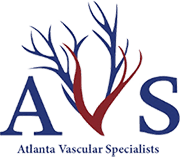Renal Artery Disease
Board-Certified Vascular Surgeons | Free Vein Center Consults
Board-Certified Vascular Surgeons
Free Vein Center Consults
Request an AppointmentHypertension and Renal Artery Disease
Hypertension is when your systolic blood pressure (SBP) > 140 mmHg and/or the diastolic blood pressure (DBP) > 90 mmHg. It occurs in 10-20 percent of persons aged 25 to 45 years and 30-40 percent of persons aged 55 to 74 years. Hypertension is a major risk factor for coronary artery disease (heart attack), cerebrovascular disease (stroke) and renal disease (kidney failure).
Here at Atlanta Vascular Specialists, our board-certified vascular surgeons are highly experienced when it comes to treating renal artery disease and other health issues stemming from hypertension. Call (404) 524-0095 to schedule an appointment.
Learn About Renovascular Hypertension
Individuals with unusually high blood pressure (SBP > 200 mm Hg/DBP > 100 mm Hg) that requires larger doses of medication to control are more likely to have secondary hypertension. A diagnosis of secondary hypertension may also be considered if patients who have had more mild hypertension (SBP 140-159 mmHg/DBP 90-99 mmHg) for many years find their condition is now more difficult to control, requiring higher doses or additional medications for blood pressure control.
The most common cause of secondary hypertension is renal artery stenosis, which is the narrowing of the arteries to the kidneys. The most common cause of narrowing is atherosclerosis. This is the buildup of fatty plaques inside the arteries.
Renovascular hypertension is particularly dangerous to the heart because of the direct toxic effects on the heart muscle. In addition, as the renal arteries become narrower, kidney failure can develop.
Signs and Symptoms of Hypertension
- Accelerated rate of hypertension in any age group
- Decrease in adult kidney size
- Loss of control of blood pressure in presence of long-standing hypertension
- Onset of hypertension in individuals under 20 years of age and over 55 years of age
- Presence of abdominal, epigastric or flank bruit
- Recurrent pulmonary edema in presence of poorly controlled hypertension
Diagnostic Testing Options
If you are suspected to have renovascular hypertension or your blood pressure has been difficult to control through other methods, your physician may refer you to a vascular surgeon for further evaluation.
Non-invasive testing
is performed on an outpatient basis. These tests are virtually painless methods of examining the blood flow to the kidneys, with minimal associated side effects or risks.
- Duplex scanning
- Laboratory tests
- Magnetic resonance imaging (MRI)/angiogram (MRA)
Invasive testing
involves the injecting of a contrast dye into the body while you are
awake. It enables the physician to have more detailed information about the blood vessels.
- Arteriogram (angiogram)
Treatment
If renal artery stenosis is detected, our surgeon will determine which method of repair would be the most appropriate and beneficial for your specific medical situation.
- Angioplasty
- Bypass surgery
- Endarterectomy
- Stent placement
All of these procedures can be performed on the artery of one kidney or, if necessary, both kidneys. The results of surgical intervention are excellent as 80-90 percent of patients have significant relief or are “cured” of hypertension.
For more information, feel free to give our office a call at (404) 524-0095.

Share On: